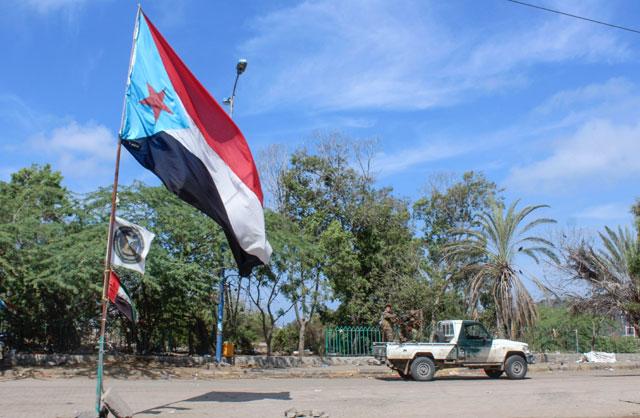- International News
- Thu-2020-08-27 | 02:28 pm

The Southern Transitional Council (STC) said in a statement that it had sent a letter to the Saudi authorities confirming "the suspension of its participation in the ongoing consultations to implement the agreement".
The Riyadh Agreement which was struck late last year was designed to mend a rift between allies in the war against Houthi rebels who have seized much of Yemen's north.
It sought to quell the "civil war within a civil war" and was hailed as a possible stepping stone towards ending the wider conflict.
But the on-again, off-again process saw the STC proclaim self-governance in the south in April, only to abandon that stance last month and pledge to implement the stalled peace deal.
The separatists said on Wednesday that their decision to pull out of the talks was due to ongoing military escalation in the flashpoint province of Abyan, and the rupture of an agreed ceasefire.
They also complained about the failure to pay public sector salaries, and a collapse of services in the south — a bugbear that helped trigger the declaration of self-rule in April.
The STC's Vice President Hani Ben Brik said in a tweet that the separatists were committed to the original agreement, but that their move was aimed at pushing for a full commitment to the deal.
There was no immediate reaction from the Saudi government.
The breakdown between the STC and the government has complicated the long and separate conflict between the Saudi-led military coalition and the Iran-aligned Houthi rebels who control the capital Sanaa.
The separatists said they came back to the Riyadh Agreement in late July under pressure from United Arab Emirates and Saudi Arabia, which had proposed a plan to "accelerate” the power-sharing process.
The plan called for the Yemeni prime minister to form a new government within 30 days, as well as the appointment of a new governor and security director for the second city Aden, where the government is now based.
Coalition divisions
The tussle for control of the south exposed divisions between the coalition partners — Saudi Arabia, which backs the government, and the United Arab Emirates, a backer and funder of the STC.
Yemen’s separatists, who have long agitated for independence in the south, signed the power-sharing deal in Riyadh last November.
But the pact quickly became defunct, failing to meet deadlines for key measures including forming a new Cabinet with equal representation for southerners and the reorganisation of military forces.
Tens of thousands of people, mostly civilians, have been killed and millions displaced in Yemen’s long conflict which has triggered what the United Nations has called the world’s worst humanitarian disaster.













